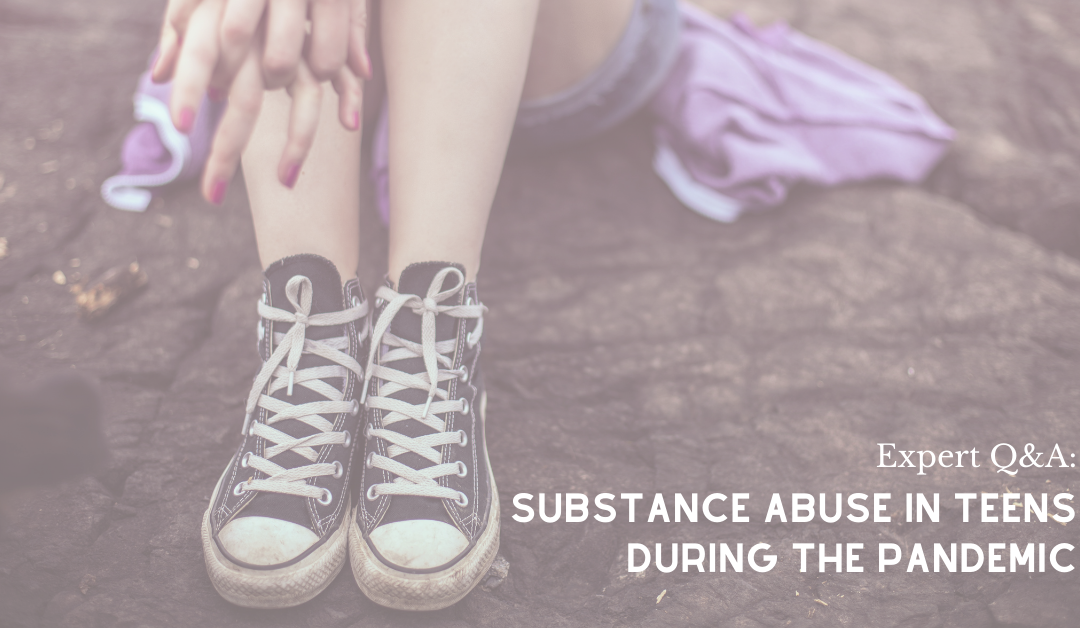Before the spread of COVID-19, studies showed that an estimated 28.6% of teens abused substances. During the pandemic, that number rose to 30.4%. The pandemic has proven to be difficult on each of us, but it has proven especially difficult on adolescents, as their social, emotional and academic constants have been altered. In honor of Children’s Mental Health Awareness Day (May 7), we sat down with Wendy B., a licensed independent clinical social worker at our Weymouth office, to discuss substance use in teens and its effects on their mental health.
What do you think has led to the rise in teen substance abuse since the pandemic began?
There is an epidemic of anxiety and depression in adolescents, and much of it is because of social media. Kids think they’re being more social, but in reality, they’re actually just sitting on their beds completely alone while scrolling through the platforms. The pandemic has only made it worse. There’s this real isolation, and children aren’t communicating with other human beings. Bullying on social media has also become more prevalent. The anxiety and depression they’re feeling very well could contribute to the rise in substance use.
Substance abuse has become a social “norm” for young adults. What advice do you have for parents who want to broach the subject with their child?
I really think, as a parent myself, that talking to your kids makes all the difference. There are obviously different parenting styles, right? Authoritarian parenting is when the parent enforces that their word is final. The child is rarely going to be honest with his or her parents with this harsh form of parenting. Democratic parenting may be a more beneficial route for families. For example, when you’re giving your child a decision to make, give them two choices instead of one, making it so they have to make the right choice for themselves. While this may help, have ongoing talks and open communication with them about these important topics. Simply telling your child to call you if they’re drinking at a party with no consequences could help them be more vulnerable and honest with you.
Abusing substances has become a social norm, and it’s been curated in schools. During an anonymous questionnaire that was done, a colleague found that children think everyone uses substances. But in reality, only a small portion of them actually do.
As a community, what can we do to raise awareness and help with prevention?
The problem lies in the fact that drugs are demonized; however, kids believe that drugs don’t do any real damage because they can’t see the underlying impact drugs have on a developing brain. That’s why I think that more psycho education around the developing brain is important. The problem with adolescents is that they have a certain mindset about doing the same thing that their peers are doing to seem cool – they take risks that they wouldn’t otherwise take because their peers perform these actions. Demonizing drugs won’t solve the problem, but educating children on their brain development and the fact that they don’t have to follow the crowd is key. Teens are really smart, and I don’t think society treats them as such. There are ways we can curb use, and that’s by simply talking to children. I’ve had talks with clients about this, and they experience a true wake-up call when finding out about the effects substances have on their overall growth.
What long term and short term impacts can a child experience if they abuse substances?
The brain is very vulnerable at a young age, and marijuana usage lowers your IQ. They say in the addiction field that your maturity stops when you start using substances. Children tend to minimize how marijuana can damage them. Their brains are still developing at this point, so they’re actually doing major harm to their brain growth by using substances at a young age.
If you or someone you know is interested in receiving services that help children who abuse substances, our team of certified staff members and clinicians want to help. At South Bay, we help children find healthy coping mechanisms and behaviors that lead to a successful, happy life. For more information, contact us at 508-427-5362 or click here.

